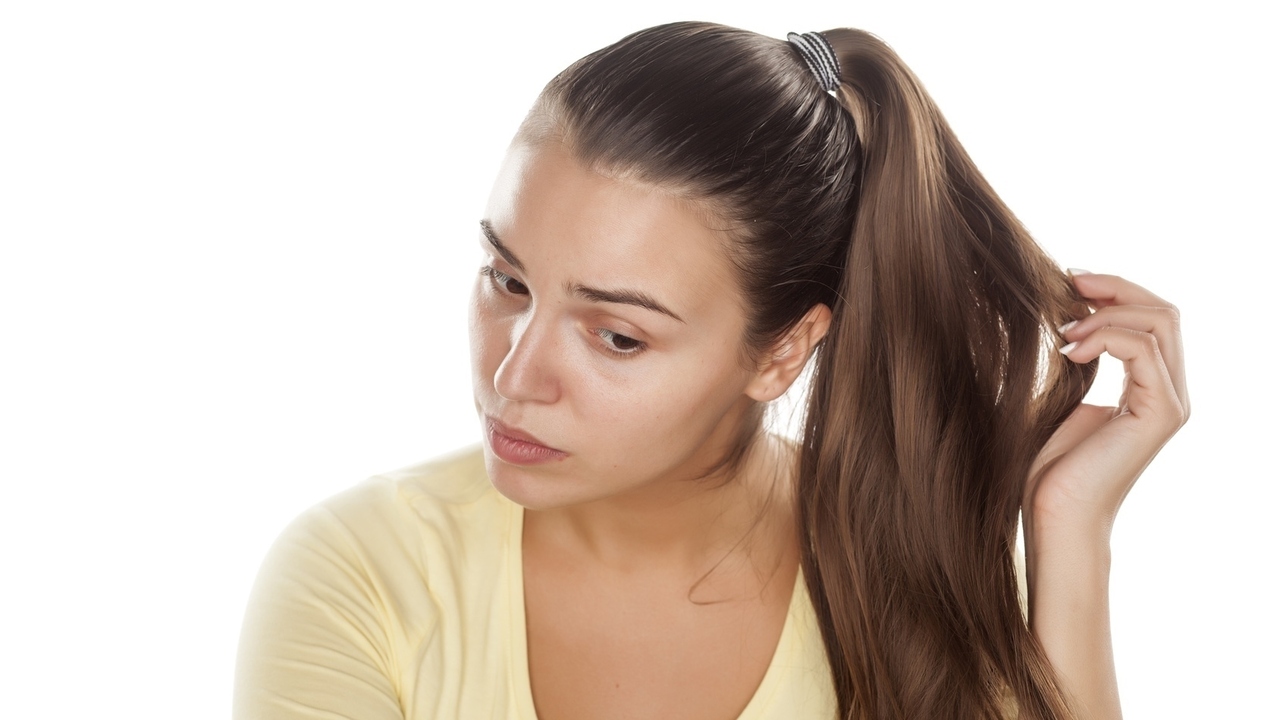Ever had a sensation of “sore” hair or unexplained burning scalp, tingling or itching to your scalp? Some people who have experienced scalp pain also have hair loss. This has lead to the concept that the two are related. What is not clear is whether a physical mechanism creates the pain or if the pain is related to an anxiety and fear of hair loss?
Hair loss can occur for numerous reasons. Hair grows in three stages: anagen (the growth phase), telogen (a resting phase), and catagen (the actual loss of the hair). Certain types of hair loss are related to events that occur during the telogen phase such as telogen effluvium. (see my article: www.empowher.com/news/herarticle/2009/06/22/stress-and-hair-loss).
A study in 2002 by Willimann and Trueb, found that both men and women report incidents of burning scalp pain or trichodynia; though women reported incidents at a much higher rate. Anxiety related to hair loss was thought to be higher in women, leading researchers to surmise that a gender difference may exist in the perception of pain. Researchers were unable to find a physical cause for the pain but they did postulate that release of a neuropeptide known as substance P may be responsible for the burning and painful scalp sensation. Substance P is involved in pain perception by the nerve endings in skin and other body parts.
Another study in 2003 found that over 30% of people who had either androgenetic alopecia (male pattern baldness) or telogen effluvium hair loss experienced burning scalp pain. They found that 76% of the people who had trichodynia had psychopathic signs versus 20% in the control group leading to the belief that there may be a psychological component to the scalp pain.
Scalp pain and hair loss definitely have an emotional component but women are repeatedly told how their pain problems are all in their head. Any chronic pain problem in time affects a person’s psychological well being. Fortunately, evidence that burning scalp pain has an inflammatory component has been determined in other immune response conditions.
Burning scalp pain can occur with cicatricial alopecia, a form of scarring alopecia that can be caused by a fungus infection. It can also occur in conjunction with auto-immune conditions such as SLE (lupus). Examination of the scalps in these patients has shown that there are inflammatory cells present that may irritate nerve endings thus leading to a burning sensation. Some patients who have severe psoriasis have also complained of itching burning scalps. Women who have used hair dye and developed scalp dermatitis may also experience burning sensations related to local inflammation.
Treatment for burning scalp pain:
Interestingly, some women who stopped using their birth control pills have reported a reduction to burning scalp pain. Capsaisin cream has also been used because it blocks substance P when applied to the hair follicles. Some medications such as antidepressants may help due to their serotonin blocking mechanism (which has been found to reduce pain perception.)
Overall, gentle scalp maintenance may provide some relief. Do not use overly hot water, harsh shampoos or wear hair pulled tightly in a pony tail. Other relaxation techniques such as massage (including gentle scalp massage), biofeedback or hypnosis may assist in reducing burning scalp pain. Dealing with painful conditions such burning scalp pain can be frustrating and distressing but there are a number of treatments available.
Sources:
http://health.howstuffworks.com/skin-care/scalp-care/problems/trichodynia.htm
http://dermatological-treatments.suite101.com/article.cfm/burning_scalp_syndrome
Willimann, Barbara and Ralph M. Trueb. "Hair Pain (Trichodynia): Frequency and Relationship to Hair Loss and Patient Gender." Dermatology. June 13, 2002.
Kivanç-Altunay I, Savaş C, Gökdemir G, Köşlü A, Ayaydin EB. “The presence of trichodynia in patients with telogen effluvium and androgenetic alopecia.
Int J Dermatol. 2003 Sep;42(9):691-3.
Michele is an R.N. freelance writer with a special interest in woman’s healthcare and quality of care issues. Other articles by Michele can be read at http://www.helium.com/users/487540/show_articles




Add a CommentComments
There are no comments yet. Be the first one and get the conversation started!